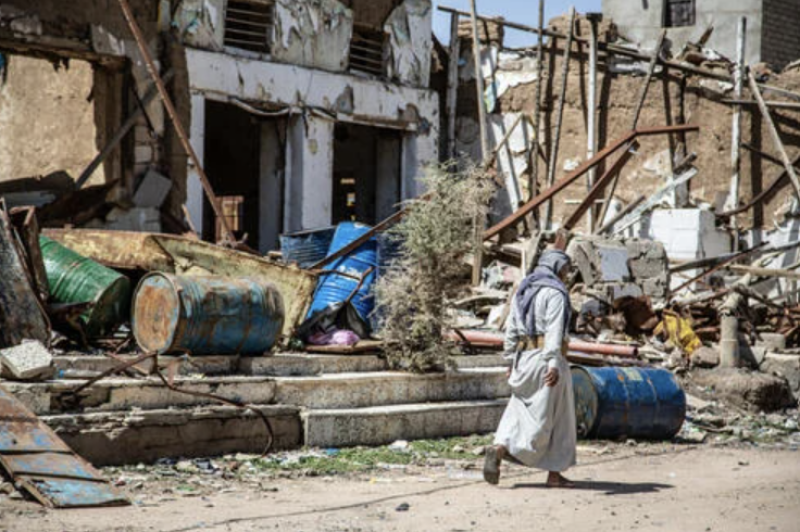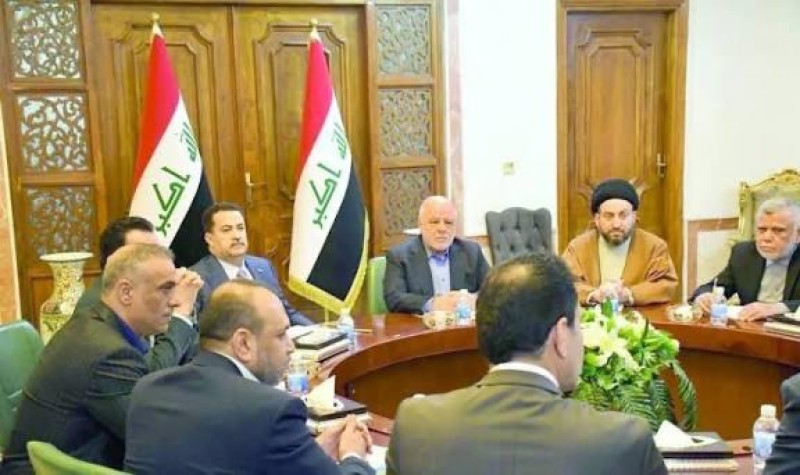Yemeni Parents in Taiz demand answers over alleged rape of their children


Six months after Amnesty highlighted delays in justice, families speak out despite concerns of reprisal and shame
For years, Raed*, 12, fetched water from his mosque in his Taiz city neighbourhood and carried it back in jerry cans for his family to use.
But one afternoon this March, the son of the mosque's imam asked Raed to fetch water from the basement, where the water fountain was, and, as soon as Raed was alone, raped him, according to Raed's mother, Zubaida*.
"My son tried to resist, but he couldn't. He is still 12 years old, and the man is in his 20s," Zubaida said.
The same month of his alleged assault, Amnesty International warned that at least three other boys, including an eight-year-old, had also been raped in Taiz over the previous eight months.
A fourth boy, 12, escaped from his attacker, a militiaman, by shooting him with his rifle, which the man had left unguarded as he started to undress, according to the report.
At the time, Amnesty said the alleged perpetrators, which included members of the Saudi-led coalition fighting in Yemen, and trusted community leaders, had yet to be held to account for what the organisation described as war crimes.
Six months later, parents say they are still waiting for justice.
Some, like Raed's mother, say they are too intimidated to approach authorities because the attackers who hurt their children hold positions of power. Others want to hide what happened because they consider rape to be shameful.
But after another mother, who did not give her name, came forward last week, in a TV interview accusing a leader in the Yemeni army in Taiz of raping her son, the unresolved cases are back in the public eye, drawing parents to speak out once again.
"I am talking about my child's case for the sake of protecting all children in Taiz, not only for the sake of my child," said Zubaida, who was speaking to the media for the first time.
"I hope that authorities in Taiz can stop their men from raping children."
'Then I knew'
While incidents of gender-based violence have shot up in Yemen since the start of the war, there are no publicly available figures recording sexual violence against children over the same years.
Experts say cases of these kinds of assault are underreported, both because they are difficult to prove and also because they are considered scandalous in Yemeni society.
Despite this, in Taiz - along with Amnesty's investigation - local newspapers and activists have reported that they believe around a dozen incidents of child rape have taken place this year.
There have not been reports of increasing numbers of child rape in other provinces, which may be down to the lack of a strong governing authority in Taiz.
Zubaida said initially her son refused to tell her what had happened to him when he returned from the mosque, but she said she was "sure there was something wrong".
"When I entered the bathroom after him, I found blood drops, and then I knew what happened," she said.
"Immediately, I asked my son if anyone had raped him, and he told me the truth. I did not hesitate to go and complain to the father of the criminal but he denied it and threatened to kill my child if I told anyone."
But Zubaida, her husband, and her close relatives, decided to complain to the authorities in Taiz anyway.
"I complained to the police station and they told me that a forensic doctor should examine him. The doctor did, but then he refused to share the results with me," she said.
"They [the police who also obtained the results] told me that if the doctor says my son was raped that may affect his relationship with friends and it can destroy the future of my son."
Zubaida insisted on getting the results, but then the relatives of the accused man also threatened to kill Raed, so she withdrew and did not follow the case.
"The relatives of the criminal are leaders in the Popular Resistance [armed supporters of exiled President Abd Rabbuh Mansour Hadi], and he himself is a member of the resistance, so we cannot face them,” she said.
Zubaida said Raed was not the only child in the neighbourhood who has been raped. There are several others, mostly from civilian families, who cannot face the security forces.
"When I asked a mother of a victimised child to complain, she said she cannot face the authorities in Taiz and preferred to stay at home," Zubaida added.
"Other mothers don't want people to know about the rape of their children because this is something shameful for the family."
Zubaida's experience echoes what some parents told Amnesty earlier this year when the organisation said it had found "a pattern of impunity and reprisals" discouraging families from reporting incidents.
Two of the four families whose children were allegedly raped or, in the case of the one boy, had escaped an attempted assault, had to relocate, fearing reprisals from militias, Amnesty found.
Zaed Alawi, a lawyer in Taiz city, said he knows of several parents who have, in fact, taken complaints to the provincial prosecutor in the past few years, but no one has been punished.
But Alawi blames this on Yemeni law, not on local authorities.
"In the Yemeni law, it is very difficult to prove rape. A judgment is only issued after the confession of the criminal and a statement from the victim, and this hasn't happened even for one case in Taiz," Alawi told MEE.
"The parents of the victims are not educated enough about Yemeni law so they keep accusing the authorities of neglecting them.
"I hope that parents of children in Taiz raise the awareness of their children about sexual harassment and teach them how to complain to their fathers if they suspect anyone," Alawi added.
A source in Taiz police office confirmed that they had received notifications of some child rape cases in Taiz and said they took actions over those cases by detaining the accused people, none of whom have yet faced trial.
But he said the expectations of the families of the children were unrealistic.
"Relatives of victims want us to solve the issue in one day and this is impossible," the source told MEE, on condition of anonymity, as activists in Taiz have launched a campaign against authorities over the issue.
"Child rape is one of the most sensitive issues, and they should go through the prosecution, the police and the forensic medicine."
He denied that alleged perpetrators in the army, or the militias that have been merged into the army, have used their authority to commit child rape, and said that organisations and activists should stop talking about the political affiliation of those who are accused which, he said, is irrelevant.
"We deal with accused people neutrally, far from their political affiliation and, if there is anyone who used his authority to exploit people, that is another accusation.
"Some women were encouraged by a political party to speak to the media about their child's rape to distort the reputation of Taiz authorities.
"I hope that people in social media stop their campaign against the security forces, and we will do our best to end the issues as soon as possible."
Zubaida said: "The crime happened against my child, and it is true that some people encouraged me to speak after more than six months of the crime, and I do not care about their political affiliation.
"If Israel will support me to punish the criminal, I will be thankful for that support."
*Names were changed for security concerns- Middleeast Eye

By Jamal Al-Awadhi For years, Yemen has been treated by the international community as a marginal conflict an unfortunate…

AbuDhabi -- The U.S. State Department announced Thursday that Secretary of State Marco Rubio held a phone call with UAE Foreign Minister Sheikh Abd…

Baghdad — The Iraqi government announced the dismissal of several officials following controversy over the inclusion of Lebanon’s Hezbo…